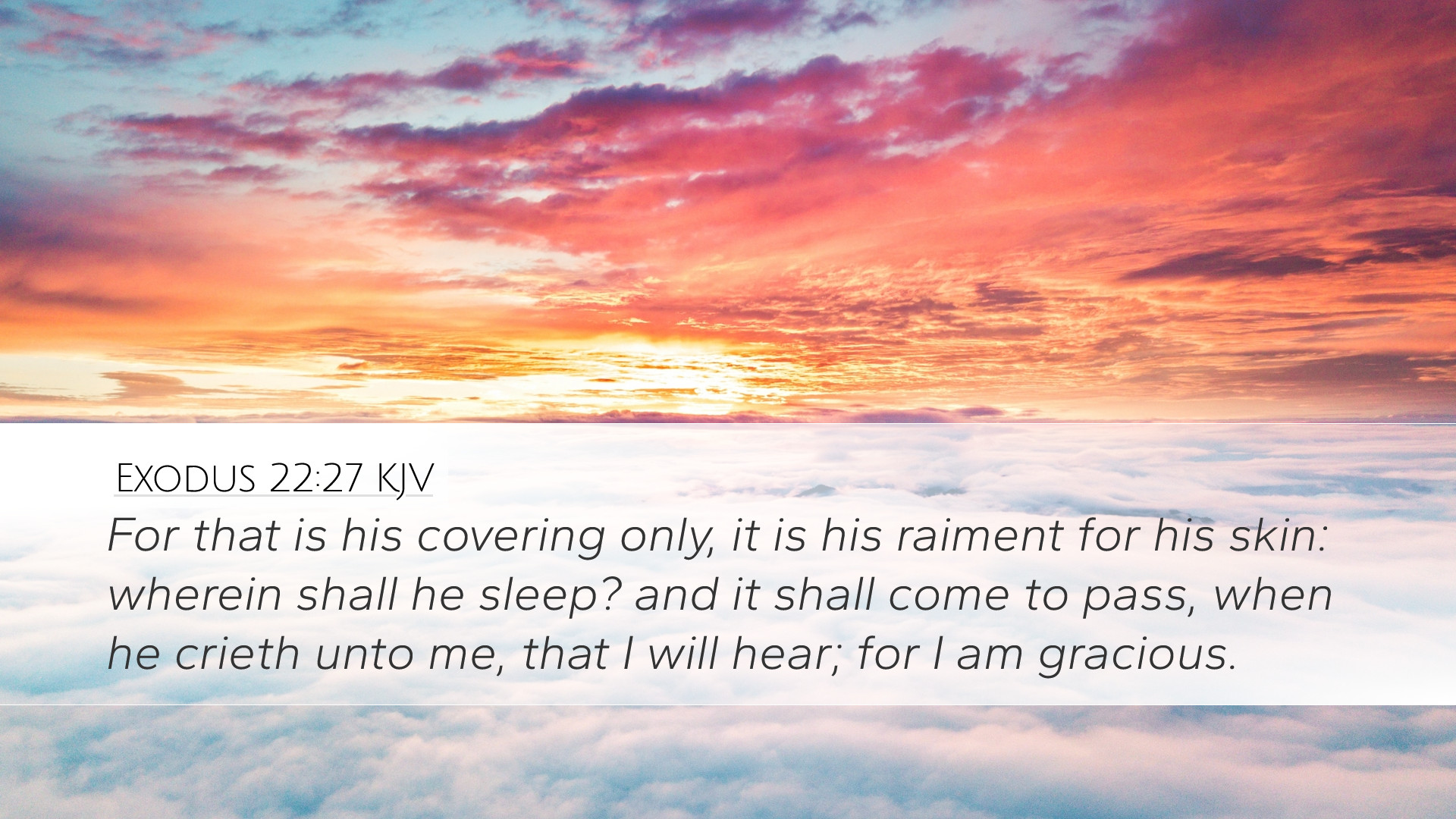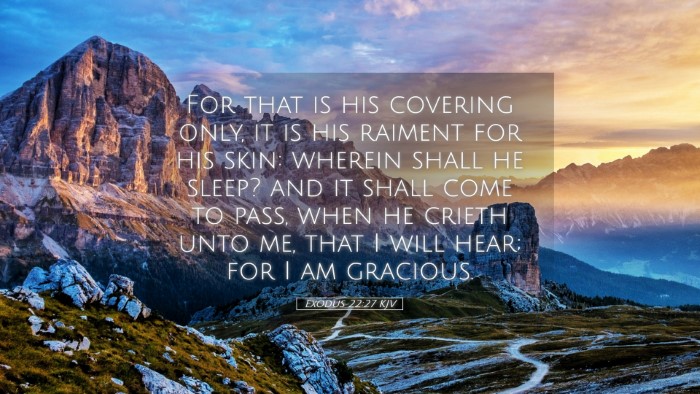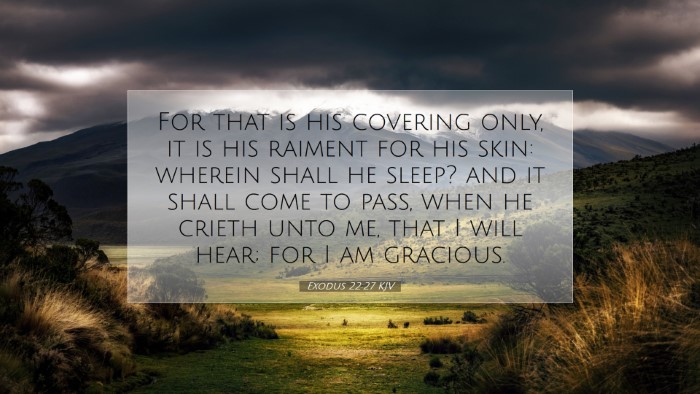Bible Commentary on Exodus 22:27
Source: Matthew Henry's Commentary
Exodus 22:27 states: "For that is his covering only, it is his raiment for his skin: wherein shall he sleep? and it shall come to pass, when he crieth unto me, that I will hear; for I am gracious."
Summary of Themes
- Divine Justice and Compassion: The verse reflects God's concern for the rights and welfare of the poor and vulnerable.
- Responsibility of Society: It highlights the obligation of those in a position of power or wealth to protect those who are less fortunate.
- God's Graciousness: The final part of the verse emphasizes that God is attentive to the cries of the afflicted, showcasing His merciful nature as a response to injustice.
Exegesis and Theological Insights
Contextual Analysis
This verse is set within a legal section of the Hebrew Scriptures that outlines principles of justice and mercy. It illustrates God's detailed concern for the marginalized, especially those who depend on their meager possessions for survival.
The Poor's Vulnerability
The specific item mentioned, a coat or covering, serves as a representation of a poor person's basic needs. In ancient cultures, where garments were often limited to few, losing such an essential item could lead to dire consequences.
Matthew Henry emphasizes that the law is rooted in compassion—God does not desire the suffering of His people. This perspective aligns with the broader scriptural narrative, which consistently calls for justice for the disadvantaged (Micah 6:8).
God's Promise to Hear
The assurance that God will hear the cries of the downtrodden speaks to His character as a defender of justice. It is an assurance not just of hearing, but of response and action. Henry notes that God's grace is especially generous towards those in distress.
Albert Barnes echoes this sentiment, noting that God's listening ear signifies His readiness to intervene on behalf of those who suffer unfairly. Therefore, believers can underscore the importance of prayer and reliance on God when facing injustices.
Comparative Theological Perspectives
Social Justice in Biblical Theology
Adam Clarke expands on the social ramifications, interpreting this command as an essential aspect of a just society. This verse contributes to our understanding of social ethics from a biblical perspective, showing that God's laws are not merely religious guidelines but are inherently tied to social conduct.
Clarke’s commentary points out that neglecting the needs of the needy would lead to divine judgment—a warning that resonates throughout the Scripture (Proverbs 17:5).
Implications for Modern Application
The application of this text extends beyond merely observing legalistic requirements. For pastors and theologians, it serves as a prompt to advocate for those who lack representation in modern society.
This commentary suggests ongoing engagement with contemporary justice issues, urging believers to embody God's concern for the downtrodden in their communities. It also reminds congregations of the importance of mercy and grace amidst social struggles.
Conclusion
Exodus 22:27 compels the faithful to acknowledge the moral weight of their actions and to foster an environment where justice prevails. As students of Scripture seek to apply its lessons, they are called to mirror God's grace and steadfastness in the face of adversity. The verse serves as a poignant reminder of God’s attentiveness to human suffering, encouraging all believers to champion equality and fairness within their spheres of influence.
In summary, this verse is not only a regulation for ancient Israel but also a timeless exhortation to love one's neighbor as oneself (Leviticus 19:18), thereby fulfilling the law of Christ (Galatians 6:2).


